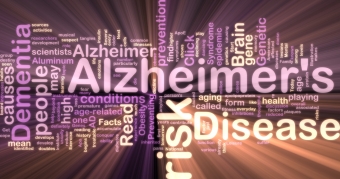Common Signs of Dementia
From forgetfulness to sudden mood changes, here is a peek at the early symptoms and what to do next. Throughout the world, there's something of a stigma surrounding dementia. That certainly isn't helpful, since the syndrome is very common. An estimated 47 million people globally are living with some form of dementia, per the World Health Organization, which number will likely grow to 75 million by 2030. Dementia may effect the mind in very different manners, and consequently, some people today ignore the early symptoms. Generally, dementia is progressive, so it gets worse over time, but early detection can greatly improve a persons quality of life. Here are some early warning signs, and some common misconceptions.
Memory loss is a frequent symptom, but distinct types of memory loss can mean various things. Memory loss is closely connected with dementia, so it's the symptom that most people consider when considering the diseases that lead to dementia--Alzheimer's, for instance. But, doctors now know that memory loss does not necessarily occur in the exact same way. With Alzheimer's type dementia, some of the first signs are short-term memory loss. That's what's responsible for asking the same question repeatedly within a few minutes, or hours, as your long-term memory may still be very sharp and intact into the more moderate to more complex stages (of Alzheimer's disease) . In contrast, other dementias will prevent the brain from remembering memories; the experiences are still in storage, but the individual won't have the ability to call them up. That is an integral factor that physicians consider when differentiating Alzheimer's from other dementias. Vascular dementia is your second-most common form of dementia after Alzheimer's. The difference is that with vascular-type dementia, memories continue to be encoded in the memory center of the brain. "With Alzheimer's type dementia, plaques develop and the neural fibers start to tangle, so they are not able to encode new information.
Mood changes can be extreme--and in some cases, frightening. Sudden mood changes may also indicate dementias, but they happen differently from person to person. Frequently, aspects of a person’s character will become exaggerated; a person who is normally very sweet will turn out to be excessively sweet, or a bossy person will become downright authoritarian. Other times, people with dementia will realize they are having trouble remembering or concentrating, so they will become quiet and depressed. Studies have shown that for some individuals in the earlier stages of Alzheimer's disease, there may be a kind of paranoia that develops, and eventually some agitation that goes with it. Alzheimer's sufferers often believe that folks are concealing or hiding things from them. Sometime these changes may be manageable through diet, exercise, and medication.
Confusion: Some individuals report an inability to follow directions. Since the brain degenerates or neural pathways become damaged, patients may have trouble concentrating on particular tasks. They may become confused easily and have difficulty getting from one place to another without constant advice. Individuals and their families, frequently ignore these symptoms in the beginning. In other cases, the symptoms become evident when an individual gets confused readily while trying to complete household activities. As the disease progresses many individuals may also have trouble identifying friends and family members.
Language changes can also occur. A person may have difficulty producing language or understanding others. This is known as aphasia, also it is especially common in stroke patients and Alzheimer's patients. In Alzheimer's patients, for example, aphasia frequently happens with no change in the individual's mind--they're just as intelligent and conscious as ever, but they have difficulty remembering words or listening to their own loved ones.
Medical tests can show particular kinds of dementia. Many dementia symptoms can result from other health problems such as blood clots, tumors, substance abuse issues, and thyroid problems that may also lead to the symptoms. When physicians try to diagnose their patients, they'll look at all accessible outward symptoms to make a determination. They may order imaging studies to look for brain damage, cerebrospinal fluid evaluations to find certain proteins associated with ailments like Alzheimer's disease. Therefore, early detection is so important, unfortunately many patients avoid their doctors because they are afraid of a diagnosis. That's a mistake, since things Dementia is not an inevitable part of aging, in spite of popular belief. So, seek medical advice from a physician don’t disregard the symptoms as long-term harm can come from not treating treatable illnesses.
Care Options range from care at home to assisted living communities and memory care facilities to group homes. So how do you choose the right alternative for yourself or your loved one? The answer to that question is a little more complicated since each person’s symptoms and desires will vary. For example, behaviors such as needing to frequently needing to walk or pace, likes or dislike socialization, wandering behaviors, outbursts, safety in an apartment setting versus a room or studio. This is where seeking help from a Senior placement agency like A Caring Hand for Mom (and Dad) which is staffed by licensed healthcare professionals with extensive experience working with seniors can be very helpful and make the difference between the right decision or the wrong one.
Related Posts
Comments
By accepting you will be accessing a service provided by a third-party external to https://www.acaringhandformom.com/




